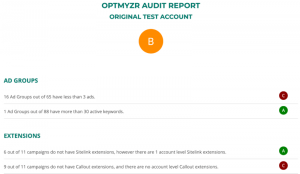— April 4, 2018

GLady / Pixabay
Protecting your client relationships has never been more critical or challenging. Today, no matter what kind of solutions your business delivers, your prospects and clients, through online reviews, social engagements and analyst reports, can quickly educate themselves on industry advancements, while keeping pace with the offerings in your space and how your brand stacks up to the competition. Beyond this, companies have never been so comfortable in swapping out solutions that they are dissatisfied with.
The critical component to not only boost your ‘client IQ’ – that is the understanding and insight around your individual clients – but also align your innovation with your clients’ evolving needs is to learn from them by listening to them. While this old adage seems simple in concept, it can be difficult in execution.
Sure, most companies say they engage their clients through their relationship management/account success /client services team, but if you’re not proactively asking the difficult questions of your clients, you’re not truly gauging their satisfaction, tracking the state of the relationship or understanding their genuine loyalty to your business. In essence, your ignoring the health of your portfolio.
An “Insane” Proposition
No doubt, directly asking a client to assess and grade your services and solutions is a scary thought to most. In fact, every executive that I have ever broached this topic with, from a niche provider to a global brand, relays fear and doubt with the pending results of a genuine client assessment initiative, with reactions like:
“Can you imagine what they would say?”
“That could really get ugly.”
“That’s insane.”
This is just a sampling of the initial responses founders and executives have given when the topic has been discussed. However, these types of responses not only convey a (reasonable) fear, but also a dangerous ignorance. Ignoring the actual sentiment and health of your client relationships is nothing more than building a business on hope.
Yes, asking difficult questions of clients is a masterful competitive advantage very few brands are courageous enough to undertake and consistently embrace. However, those that do that embrace this, not only have the ability to prove their worth and commitment to their clients by resolving their issues, but also generally create powerful goodwill in showing that they genuinely care about their clients’ opinions. Beyond this, the intelligence gathered from client assessments can drive innovation and advancements directly towards the needs and trends of the market rather than trying to guess the enhancements you think your clients may want.
Driving Genuine Success
To effectively deliver your organization the advantage of a client assessment process in terms of both insight and innovation, you need it to be constructed on five general principles. These ‘five Cs’ serve as a foundation to deliver intelligence that can ultimately grow your business and drive your innovation.
Candor: At its most fundamental level, your client assessment process has to be built on uncovering the true state of your relationship with the businesses you serve. This means not only asking the difficult, direct questions, but also embracing the feedback no matter how negative it may be. Every piece of feedback is an opportunity to strengthen your relationship no matter the state it is in. Asking for direct, candid feedback is critical, otherwise it’s a pointless endeavor.
Commitment: As difficult as a client assessment process may seem from its initial steps, having a commitment across the organization is critical to its success. Battling consistent push-back from departments or discounting of the feedback creates a tension that carries over into the client relationships. It should be stressed that your client assessment process is focused on strengthening your client relationships above all else, which is something everyone in your organization should be supportive of.
Comfort: The challenge of getting candid feedback, even when you ask for it, is receiving it. While there are always those clients who will fire away with unfiltered commentary at every opportunity, many, if not most do not want to negatively critique an individual or team that is directly supporting them. Managers realize they have to maintain a relationship with a partner team even when their satisfaction may be diminished. This is why having an independent, third party is often critical to getting authentic feedback from a client assessment. It gives the client a level of comfort to be candid while also conveying an enhanced credibility for you brand, in that you’re embracing this process while genuinely wanting their feedback.
Correction: While soliciting the feedback can often generate immediate goodwill, even with clients who are disappointed in your service, nothing will erode this goodwill like asking for feedback and then ignoring it. This is why responding and taking action to every assessment is critical. While correcting issues and meeting expectations should be a primary goal of your client assessment process to protect your portfolio and preserve your revenue, there can be added dividends from clients who deliver positive reviews of your business. These types of strong assessments provide an ideal opportunity to request references, gather testimonials and even generate case studies to elevate and expose your brand to further grow your portfolio.
Consistency: Once you have implemented your client assessment process you should see enhancements with your client relationships as you remain committed to the process and resolving the issues it uncovers. The key component is keeping the process consistent. While it creates goodwill and powerful intelligence for your business it also sets an expectation with your clients as they come to appreciate and rely upon the independent “feedback” loop it provides. This then evolves into a intelligence “channel” and a true competitive advantage for your business.
The Bottom Line
Brands that that genuinely listen and learn from their clients are the ones who not have the benefit of understanding their weaknesses to improve them, but also gain a strength that can drive their innovation and reputation. As difficult as it may be from the outset, asking your clients the difficult questions about your solutions and support will deliver a competitive advantage to your brand like no other.
The key to developing a strong client assessment process is to root it in candor, where clients feel comfortable to provide genuine feedback through an independent channel. Beyond this, having an organization-wide commitment to correct the issues that arrive and consistently solicit feedback through these assessments will help strengthen those weak client relationships, while providing the stronger clients with increased loyalty and even evangelism for your brand.
Once its off and running, the feedback from those on your team who may be skeptical typically transforms responses to echoes of “this is great,” “it’s so valuable,” and even, “this is the most important initiative we’ve ever undertaken,” as one CEO put it.
Business & Finance Articles on Business 2 Community
(87)







